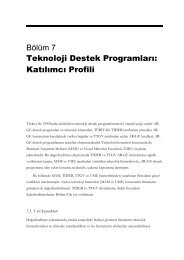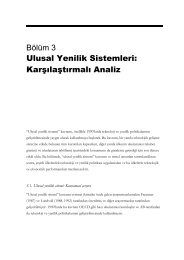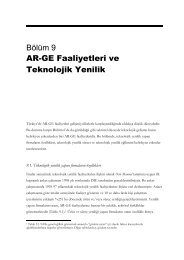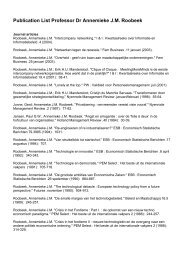Eleventh Five Year Plan
Eleventh Five Year Plan
Eleventh Five Year Plan
You also want an ePaper? Increase the reach of your titles
YUMPU automatically turns print PDFs into web optimized ePapers that Google loves.
Drinking Water, Sanitation, and Clean Living Conditions 1695.41 Long distance water transfer has brought in theattendant issues of dependence on other States forurban water supply. For example, Delhi depends onHaryana and UP for its water supply. Chennai gets15 TMC of Krishna River Water from Andhra Pradesh.Bangalore water supply is fully dependent on Cauverywaters. There are a few instances when even withinthe State people object to transfer of water from onedistrict to another. Some times, these issues have aserious implication on the sustainability of suppliesto the cities.Demand and Supply Management5.42 There is a huge gap between the demand andsupply of water in urban areas, which is also growingdue to population and urbanization. Norms for variousplaces depending upon the level of developmenthave been established and it is maximum for metropolitancities. The regular <strong>Plan</strong> programmes by theStates are heavily tilted in favour of supply side management.Recycling and reuse of water, reducing thewater demand through rainwater harvesting, usingwater-efficient household equipment, including flushingcisterns would go a long way in conserving waterand reducing demand. Proper metering of water andrational tariff would reduce water demand and encourageconservation. We need to have a concept of waterefficienthomes in urban areas and for this there is aneed to have a well-orchestrated information campaign.Long distance piped water transfer and desalinationof water in coastal areas as augmentationmeasures are very capital-intensive. Demand managementis necessary to achieve sustainability. An integratedwater supply and use strategy such as used inSingapore (see Box 5.3) should be encouraged.Financing and Institutional Issues5.43 Provision of water supply in urban areas is basicallya responsibility of urban local bodies. The PPPefforts to attract financing of water supply projects arefinding its place, though so far only in few cases (seeBox 5.4). PPP is important to leverage governmentinvestments and to access private sector managementefficiencies. Reforms are a necessary preconditionfor gaining success through PPP. It is paradoxical thaturban utilities receive funds from institutions such asHUDCO, LIC, government, etc. without any reformconditionalities but on the other hand, States are givenadditional financial support towards implementingreforms through schemes like JNNURM.Box 5.3Public Utilities Board (PUB) SingaporePUB is the National Water Agency in Singapore charged with water, wastewater, and storm water management in the city state.The public agency services about 4.5 million people and a number of major industries with intensive water use. The developmentand implementation of the complete management system is ongoing but has taken over a period of about 40 years.PUB’sholistic approach has resulted in a lower dependence on external water sources by diversification of water sources includingwater reuse, desalination, storm water storage in new water storages, and supply of very high-quality recycled water to industrywith some internal reuse of this supply. Singapore presents a challenging environment for water resources management, as itis a small but densely populated island city state.In its own operations PUB has significantly reduced water losses due toleakage in pipes and inaccurate meters. It has 100% servicing of its population with water and waste water services and strongpolitical and public acceptance of its policies and services.It has been accompanied by a major change in water pricing andaccess policy, which aims to use the rate structure to encourage the more efficient use of water. PUB has been able to providelowered costs of delivered water of improved higher quality to industry and the community. Reclaimed water branded NEWaterin Singapore is recognized for its high quality. Singapore has also been able to maintain low water costs for households onthe lowest tariff water supply despite the major capital investments in new equipment and systems. Its household directedcampaign of ‘Water-efficient homes’ helps residents to save water at home and reduce their water bills.Through an extensivepartnering programme with the water industry in all aspects of implementation it has been a model of outsourcing skills.From this it has developed an industry capable of transferring this knowledge and skills to the region as well as attracting abroad rage of industry skills and capabilities as well as research in Singapore.The PUB story would fit well as a study examplein the education of water managers. PUB has won the prestigious 2007 Stockholm Industry Water Award.PUB website: www.pub.gov.sg


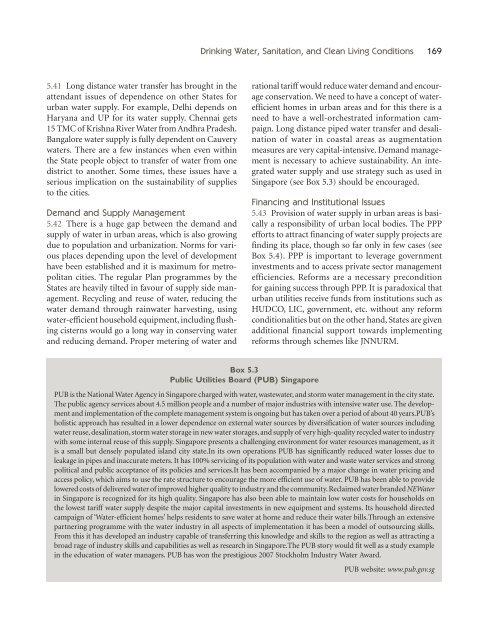

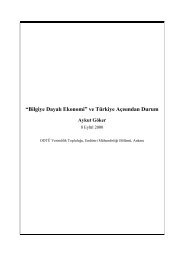
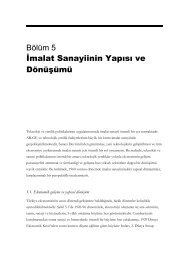
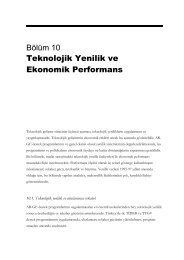
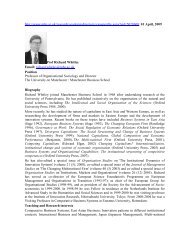

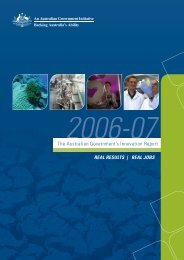
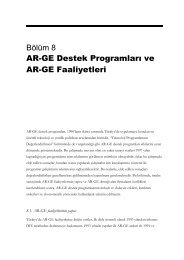
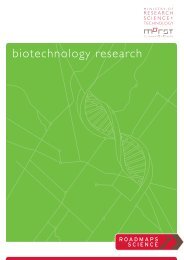
![[Tam] Uygula[ya] - Bilim, Teknoloji ve Ä°novasyon Politikaları TartıÅma ...](https://img.yumpu.com/36820041/1/184x260/tam-uygulaya-bilim-teknoloji-ve-anovasyon-politikalara-tartaama-.jpg?quality=85)
